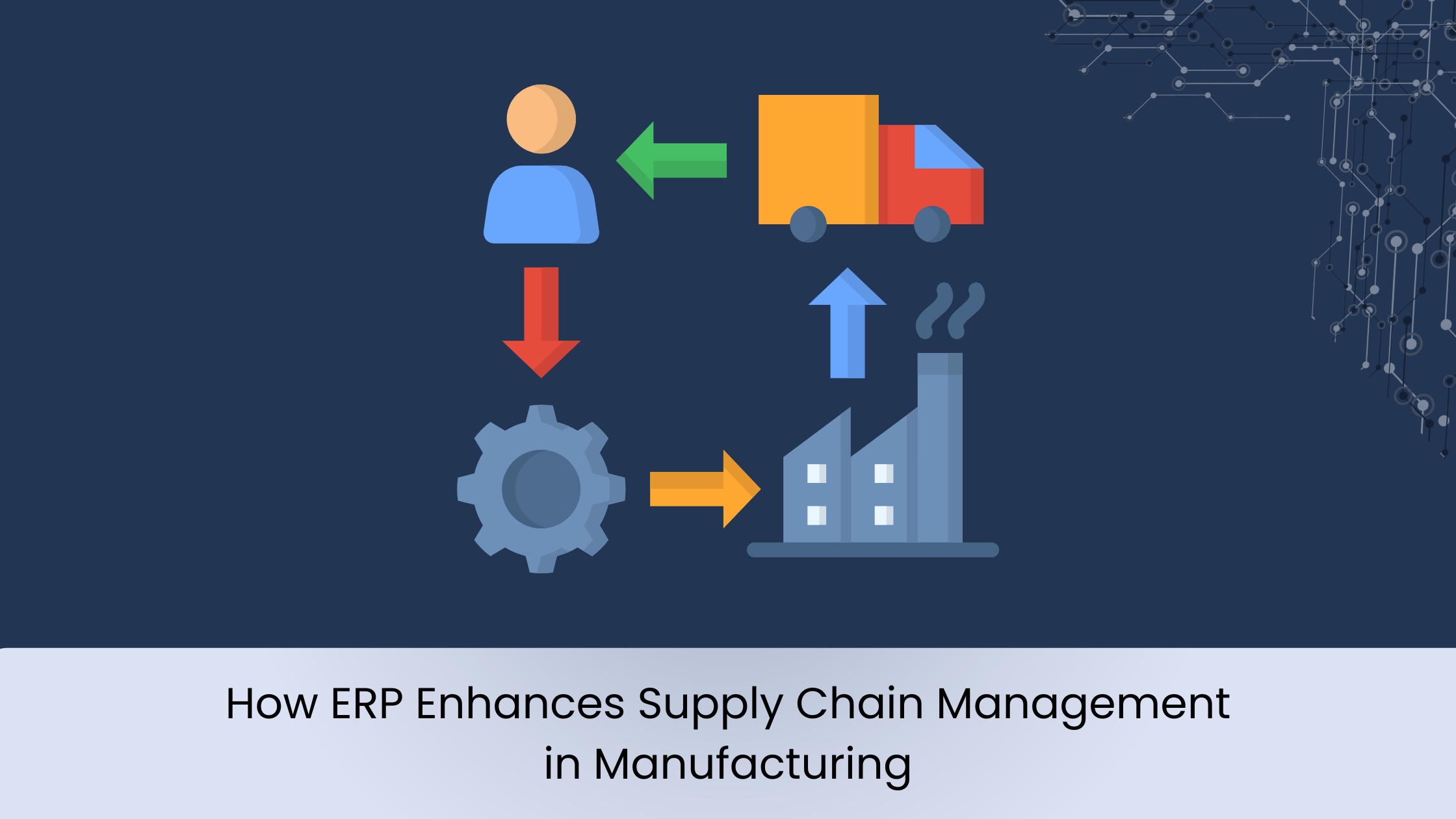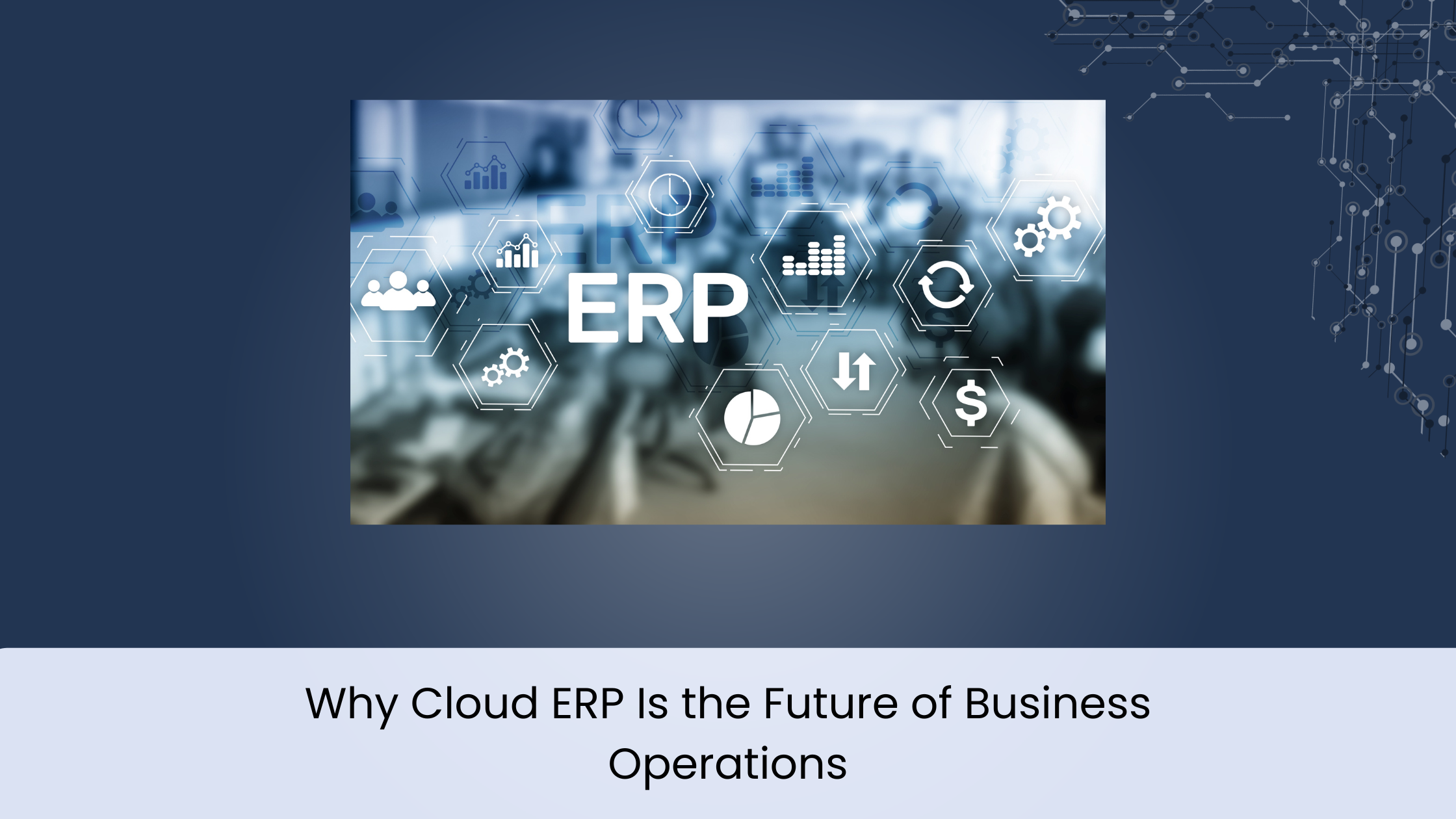How ERP Enhances Supply Chain Management in Manufacturing

Strong 8k brings an ultra-HD IPTV experience to your living room and your pocket.
Introduction
What’s slowing down your supply chain? Is it a lack of visibility, manual bottlenecks, or data silos that keep operations disconnected?
In a hyper-competitive landscape, manufacturers can no longer rely on fragmented systems. They need streamlined, integrated processes—and that’s where ERP for manufacturing shines. By adopting powerful ERP systems like ERPNext, companies can elevate every aspect of their supply chain, from procurement to delivery, while boosting agility, reducing costs, and enhancing customer satisfaction.
This article explores how ERP enhances supply chain management in the manufacturing sector, with a deep dive into the capabilities of ERP for supply chain management ERPNext, implementation tips, feature breakdowns, and real-world benefits.
ERP and Supply Chain in Manufacturing: A Perfect Synergy
Supply chain management (SCM) in manufacturing is inherently complex. From raw material sourcing to final product delivery, every link in the chain must function smoothly. Any disruption, miscommunication, or delay can result in cost overruns and customer dissatisfaction.
ERP for manufacturing companies bridges these gaps by providing real-time data, centralized control, and intelligent automation across supply chain workflows.
ERPNext Modules Driving Supply Chain Management in Manufacturing
ERPNext is a comprehensive, cloud-based ERP enterprise resource planning system built to handle multi-layered supply chain processes with precision. Let’s explore how different modules work cohesively to enhance SCM:
1. Procurement and Supplier Management
- Automate purchase requests, supplier quotations, and purchase orders.
- Track supplier performance, lead times, and quality metrics.
- Ensure material availability without overstocking.
2. Inventory & Warehouse Management
- Track inventory across multiple warehouses and locations.
- Enable automatic reordering with stock level triggers.
- Use barcode and batch tracking for item traceability.
3. Manufacturing and Production Planning
- Integrate BOMs (Bills of Materials) and Work Orders.
- Manage material requirements planning (MRP).
- Align raw material usage with production schedules.
4. Logistics and Distribution
- Optimize delivery routes.
- Automate delivery note generation and shipping processes.
- Connect dispatch with customer orders for accurate fulfillment.
Key Features of ERP for Supply Chain Management ERPNext
Let’s look at the standout features that make ERP for supply chain management ERPNext a must-have for modern manufacturers:
A. Real-Time Data Visibility
No more guessing inventory levels or pending deliveries. ERPNext provides live dashboards and reports for:
- Inventory movement
- Material availability
- Order fulfillment progress
- Supplier delivery timelines
B. Centralized Communication
Forget long email threads. Every stakeholder — from procurement to sales — can access centralized data through ERPNext, ensuring everyone stays aligned.
C. Custom Workflows and Alerts
Configure approval workflows, set up reorder alerts, and automate compliance checks based on your business rules.
D. Seamless Module Integration
ERPNext integrates its manufacturing, inventory, sales, CRM, and accounting modules so departments no longer work in silos. For example:
- A confirmed sales order triggers purchase requisition.
- Goods receipt updates inventory and notifies production.
- Invoices and payment follow once goods are dispatched.
E. Forecasting and Demand Planning
With historical data, ERPNext helps manufacturers forecast demand, plan procurement, and schedule production accordingly—minimizing stockouts and overproduction.
Why Every Manufacturing Company Needs ERP-Enabled SCM
1. Reduces Lead Times
ERP reduces procurement and production lead times by automating workflows and alerting teams to pending tasks.
2. Lowers Operational Costs
Inventory holding costs, delays due to miscommunication, and manual processing errors are minimized.
3. Improves Customer Satisfaction
Timely deliveries and accurate order fulfillment lead to happy, loyal customers.
4. Enhances Collaboration with Vendors
Through supplier portals and performance tracking, manufacturers can build better relationships with vendors.
5. Supports Growth and Scalability
As your business grows, ERPNext supply chain management scales with you—adding new warehouses, suppliers, or product lines seamlessly.
How to Choose the Right ERP for Supply Chain in Manufacturing
When evaluating ERP systems, consider:
- Customization: Does the system support your specific manufacturing processes?
- Cloud-Based Access: Can your team work remotely and collaboratively?
- Support for Multi-Level BOMs & MRP: Essential for manufacturers.
- Strong Implementation Partner: Opt for an experienced ERPNext implementation partner like Sigzen for tailored deployment and support.
- Cost and ROI: Consider total cost of ownership vs long-term efficiency gains.
ERP Implementation in Agriculture: Lessons for Manufacturing
Interestingly, ERP implementation in agriculture offers valuable insights for manufacturers. Agriculture, like manufacturing, deals with complex inventory, seasonal supply chains, and regulatory compliance.
- Both industries benefit from:
- Real-time resource tracking
- Supplier and procurement management
- Workflow automation
- Data-backed decision-making
ERPNext is flexible enough to support both agriculture and manufacturing supply chains with ease.
Implementation Tips from ERPNext Consultants
Whether you're a small manufacturing unit or a multi-factory enterprise, here’s how to ensure successful ERP adoption:
- Define Clear Objectives: Identify pain points in your current SCM process and set measurable goals.
- Engage Stakeholders Early: Involve procurement, logistics, production, and sales teams in planning.
- Choose an Experienced ERPNext Consultant: A reliable ERPNext functional consultant can design workflows tailored to your supply chain.
- Adopt a Phased Rollout: Start with key modules like Inventory and Procurement, then scale.
- Ensure Data Accuracy: Migrate clean and standardized data from legacy systems.
Conclusion: ERP-Powered Supply Chains Are the Future of Manufacturing
Disruptions in supply chains aren’t going away—but with ERP, manufacturers can manage them proactively.
From automating procurement to optimizing delivery schedules and enhancing supplier collaboration, ERP for manufacturing transforms supply chain management into a competitive advantage. With robust platforms like ERPNext, businesses not only gain visibility and control—they also future-proof operations for scalability, innovation, and growth.
FAQ Section
1. What is ERP and how does it help in supply chain management?
ERP (Enterprise Resource Planning) integrates all business operations, including SCM, into one platform. It helps manage procurement, production, inventory, and logistics efficiently and in real time.
2. Why is ERP important for manufacturing companies?
Manufacturers rely on ERP to align procurement, production, and delivery. It ensures inventory accuracy, reduces costs, and streamlines operations for higher efficiency.
ERPNext offers modules like procurement, inventory, production, and logistics management, all tightly integrated for end-to-end supply chain control.
4. What makes Sigzen a reliable ERPNext implementation partner?
Sigzen brings expertise in manufacturing, offers tailored solutions, and ensures smooth deployment with minimal disruption.
5. Can ERP used in agriculture be adapted for manufacturing?
Yes. ERP principles like inventory control, vendor management, and workflow automation apply to both sectors. ERPNext is flexible enough to support both use cases.
Note: IndiBlogHub features both user-submitted and editorial content. We do not verify third-party contributions. Read our Disclaimer and Privacy Policyfor details.



